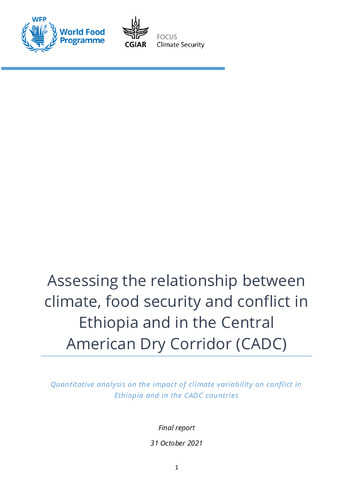Assessing the relationship between climate, food security and conflict in Ethiopia and in the Central American Dry Corridor (CADC). Quantitative analysis on the impact of climate variability on conflict in Ethiopia and in the CADC countries
In this study, we investigate the climate-food security-conflict nexus in Ethiopia and the CADC (Guatemala, El Salvador, Nicaragua, Honduras). Both Ethiopia and the CADC are hotspots of high climate variabilities, high political insecurity, and conflicts and widespread food and nutrition insecurities across their populations. Therefore, the main research questions that this study aims to answer for the CADC countries:
• Is climate exacerbating existing threats that could increase the risk of conflict in the CADC countries and in Ethiopia?
• Are areas of high climate variability correlated to high socio-political insecurity in the CADC countries and in Ethiopia?
• How can WFP programming become more climate security sensitive?
Our main findings can be summarized as follows:
(1) Climate exacerbates existing household level risks and insecurities that can increase the likelihood and intensity of conflict. In other words, we find evidence that climate is a threat multiplier in Ethiopia and El Salvador .
(2) In addition to climate induced insecurities, there exist other important household level predictors of conflict, such as age, education, and gender of the head of the household, ethnicity, access to electricity and location in Ethiopia and El Salvador.
(3) The climate security nexus – the way climate, socio-economic and political risks and insecurities are linked to each other – differs across countries (Guatemala, Honduras, Nicaragua, El Salvador and Ethiopia) and conflict clusters.
(4) There exist “climate insecurity hotspots” at sub-national level where high level of climate variability, conflict intensity and diversity co-occur with other existing socio-economic insecurities.

